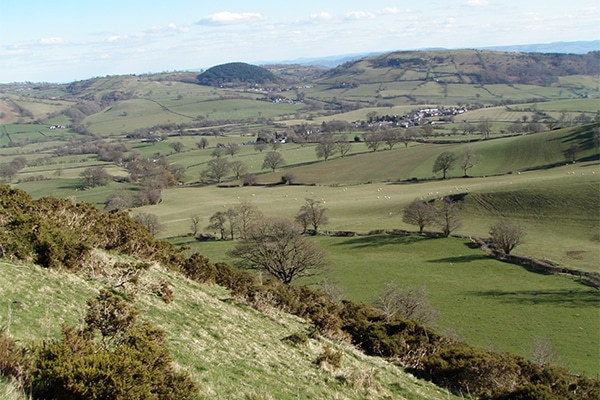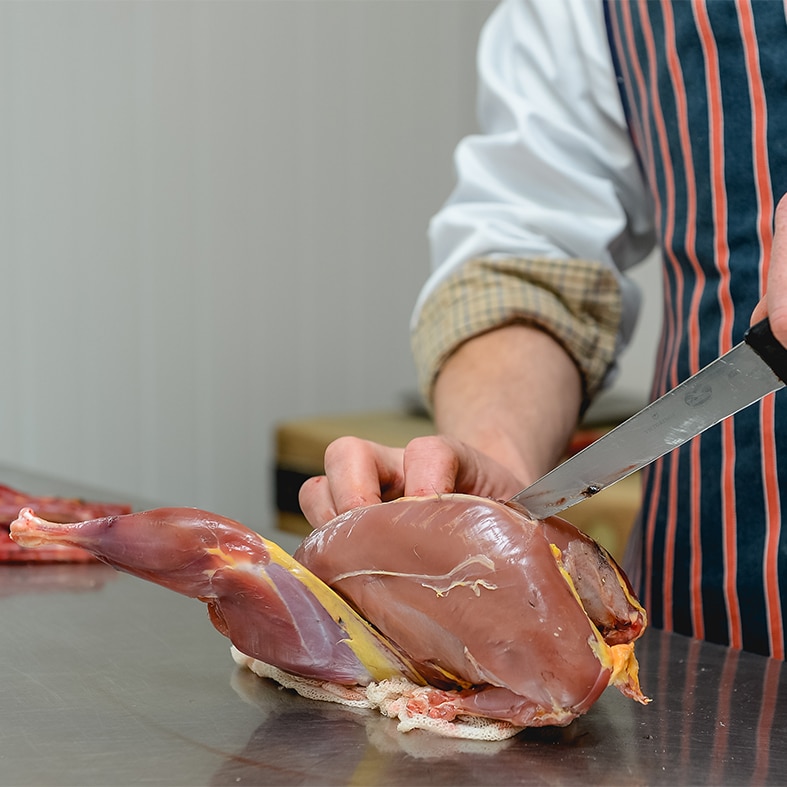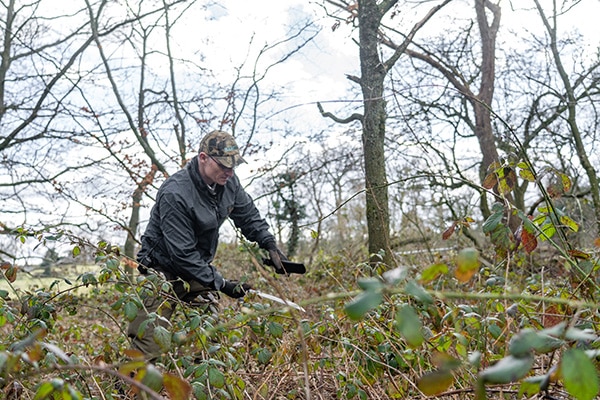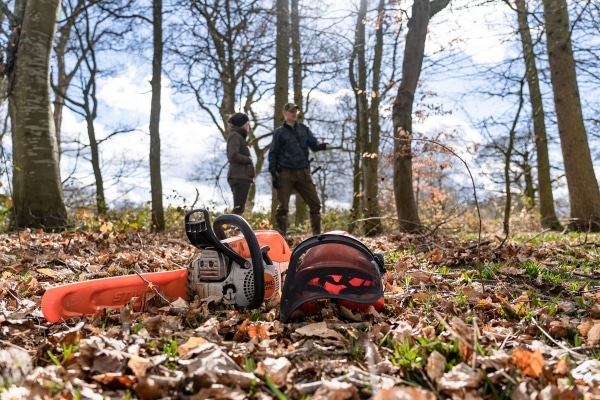
Rural land management
We can give advice about the land you already shoot over or land that you are looking at to take over for shooting.
Get information on the legal shooting season for mammals and birds in the UK.
Learn about our current conservation projects and how you can get involved.
Comprehensive information and advice from our specialist firearms team.
Everything you need to know about shotgun, rifle and airgun ammunition.
Find our up-to-date information, advice and links to government resources.
Everything you need to know on firearms law and licensing.
All the latest news and advice on general licences and how they affect you.


Home » Gamekeeping » Stock and poultry advice » Small game preparation
Food hygiene is paramount
All game preparation must be carried out with good food hygiene being the number one priority.
When transporting shot quarry, BASC advises members to adhere to the Code of Good Shooting Practice’s Guide to Good Game handling (NEEDS LINK). If you’re preparing game for the table, follow guidance set out by The Food Standards Agency (FSA) and NHS England.
The following guidance only relates to game being processed, stored, and cooked for personal consumption.
Those operating as a food business, including the primary producer, need to comply with the hygiene regulations for supplying game for human consumption.
There are also rules and regulations relation to the sale and supply of game meat to others which must be complied with. Click the country-specific links below for more information regulations in your area:
he process of good game handling begins as soon as the shot game is in the hand. The basics of good handling of shot game includes keeping it clean, protecting it from contamination, rapid cooling to 4°C or below, and correct storage until it is processed.
Find out more information on how to do this (NEEDS LINK).
There are specific legal rules on the storage of game if it is being supplied to others which must be followed. It is a good principle to follow these for home consumption. Key basics are to keep them cool, dry, and away from any source of contamination, eg. flies.
Some people like to hang game to improve it’s flavour. The time allowed for this is a matter of personal preference, however, this will be affected by factors such the species and the storage facilities you have available. For example, hanging time would reduce (if undertaken at all) if you don’t have suitable refrigerated storage facilities or the ambient temperature is not sufficiently cool.

We can give advice about the land you already shoot over or land that you are looking at to take over for shooting.

We run a wide range of courses designed to improve your skills in all areas of shooting, including running shoots and gamekeeping.

Find out how you can make the most of woodland areas to enhance your shoot, create wildlife habitat and bring environmental benefits.
Sign up to our weekly newsletter and get all the latest updates straight to your inbox.
© 2024 British Association for Shooting and Conservation. Registered Office: Marford Mill, Rossett, Wrexham, LL12 0HL – Registered Society No: 28488R. BASC is a trading name of the British Association for Shooting and Conservation Limited which is authorised and regulated by the Financial Conduct Authority (FCA) under firm reference number 311937.
If you have any questions or complaints about your BASC membership insurance cover, please email us. More information about resolving complaints can be found on the FCA website or on the EU ODR platform.
This website uses cookies so that we can provide you with the best user experience possible. Cookie information is stored in your browser and performs functions such as recognising you when you return to our website and helping our team to understand which sections of the website you find most interesting and useful.
Strictly Necessary Cookie should be enabled at all times so that we can save your preferences for cookie settings.
If you disable this cookie, we will not be able to save your preferences. This means that every time you visit this website you will need to enable or disable cookies again.
This website uses Google Analytics to collect anonymous information such as the number of visitors to the site, and the most popular pages.
Keeping this cookie enabled helps us to improve our website.
Please enable Strictly Necessary Cookies first so that we can save your preferences!
More information about our Cookie Policy